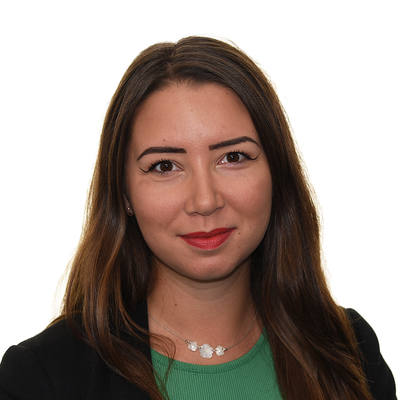Alumni
This person is a member of Sanger Institute Alumni.
Georgia left the institute in 2023
Overview
I’m a geneticist by formal training who worked her way into the world of computational biology. As an analytical expert, I apply computational tools and methods to genetic data and associated information to drive forward solutions to a variety of complex biological problems. Mission, vision and strategy are at the heart of why I do what I do – I’m invested in the bigger picture.
My overarching goals in my role at Sanger are to improve and adapt infrastructure to extrapolate information from genomic data, and to deliver this information in clear and concise messages to partners around the world so that improvements can be made in the control and treatment of Malaria.
My time at Sanger
When joining the Sanger Institute in 2020 I was immediately seconded to the Covid-19 project where I worked as part of the Covid-19 data analysis team to stand up operations for surveillance of lineages across England, creating informatic infrastructure that contributed to the Covid-19 surveillance dashboard.
From 2021 I dived into parasite genomics through work with MalariaGEN in the data analysis and interpretation team. I quickly adapted to working in a new domain with a new organism – analysing whole genome data of ~>20k Plasmodium falciparum samples to describe population structure, drug resistance associated with haplotype frequencies, and nucleotide variation for the Pf7 data release and analysis paper which was later published in 2023.
In 2022, following my promotion to Senior, I turned my hand to more operational science – leading a technical working group for the AmpliconToolkit – our flagship parasite product in the GSU. I cultivated a team of scientific experts and facilitated and engaged in weekly discussions to improve the science behind our work. I communicated with an in-house matrix team of bioinformaticians and software developers – working in agile – to feedback and harmonise the end-to-end product development. I additionally worked on collaborative projects with scientific partners overseas to develop new scientific methods and microhaplotype panels for Plasmodium vivax.
From 2023 I moved to the Parasite Surveillance team where I worked with wet-lab scientists to collaboratively develop new methods for parasite sequencing and furthered collaborations with scientific partners on genomic data analysis projects.
In essence, I am a flexible and collaborative person with a technical skill-set and biological domain knowledge who has a passion for bringing multidisciplinary groups of people together to execute world-changing science.
Before joining Sanger
Whilst studying for my bachelors at the University of East Anglia, I rapidly developed interest in genomics and the evolving technologies that will undoubtedly change the way that we treat disease and improve human health. For my undergraduate thesis I joined the Haerty Group at the Earlham Institute where I developed bioinformatics pipelines to analyse short-read RNA-Seq data from human prefrontal cortex brain tissue to investigate the effects of alternative splicing on voltage gated calcium channel subunits. I was specifically interested in how changes in development and ageing affect the use of exonic segments, and in particular incidences of schizophrenia.
Following on from the project I was selected for the Genes and Development Summer Studentship 2020 funded by the Genetics Society UK, where I continued to work in the Hearty Group at the Earlham Institute analysing Oxford Nanopore long-read RNA-Seq data to address alternative splicing in neuronal cell differentiation. With a multitude of psychiatric disorders and diseases attributable to mis-splicing it’s increasingly important to use long-read technologies for full transcript recovery to build more accurate transcriptomic annotations.
Learning how to code
As the genomics landscape continues to amass an enormous amount of data, there is a huge need to develop coding skills early on in scientific careers. Learning to code changed my life in ways I can’t describe. It opened doors that I didn’t think were possible (ie. getting this role here at Sanger with just my undergrad!).
- I encourage any young scientists to go out and get these skills as soon as possible.
- I encourage companies/research institutes to create learning/entry level roles to facilitate learning these skills on the job (with some prior exposure before, see above point!)
- I encourage schools and universities to build in coding much earlier to biological curriculum
My timeline
Senior Data Scientist (Genomic Surveillance) at the Wellcome Sanger Institute
Data Scientist (Genomic Surveillance) at the Wellcome Sanger Institute
Completed a Genetics Society Internship in bioinformatics @ Earlham Institute
Graduated with first class honours from the University of East Anglia (UEA) with a BSc in Molecular Biology & Genetics
Awarded CertHE in Medical Science from Medipathways College, University of Buckingham
